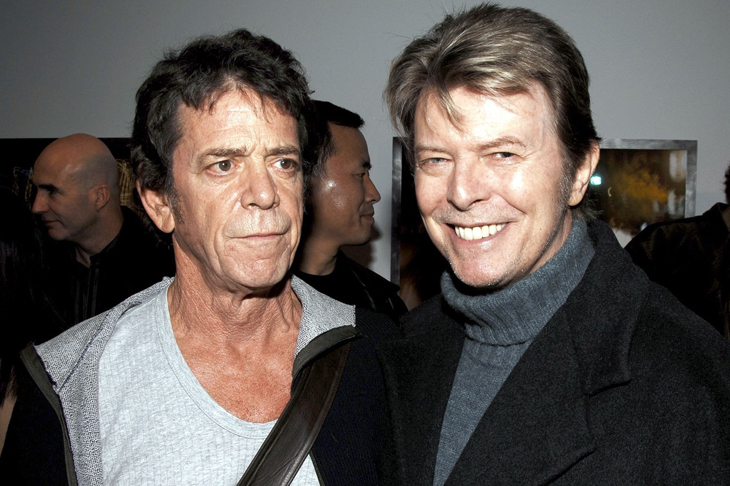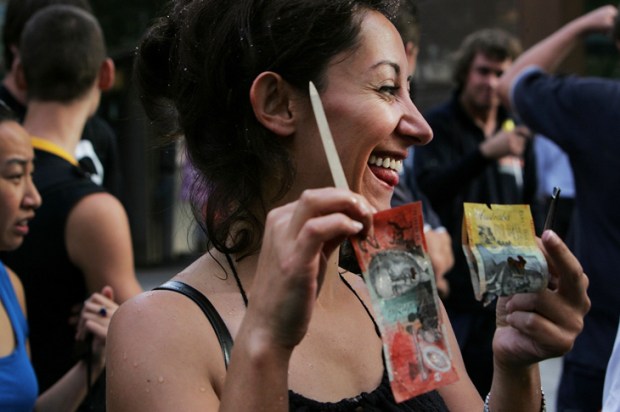Oh, it’s such a perfect month for fans of the late Lou Reed. Maybe a bit of a melancholic one, too, at least for those who were around way back when. Fifty years have now passed since the classic album Transformer first appeared on 8 November, 1972. Let that sink in.
Can you believe it? Is it really a half-century since the American songwriter issued his musical report on the sexual health and bad manners of New York City, waylit by drinking sangria in the park and tearful lovemaking sessions back at the apartment? Time marches on at a terrifying pace. And yet, even so, it sounds like no time has passed at all.
The singer’s charcoal voice layered on slick arrangements feels as up-to-the-moment as the iconic album cover photograph, shot by the photographer Mick Rock, with a completely stoned Reed playing an outsize guitar and staring off into the distance with blood and chocolate eyes.
Transformer is often referred to as Reed’s second solo outing – what rock critics have a rather silly habit of calling the ‘sophomore’ release – but to all intents and purposes it was a first. An earlier effort, his eponymous ‘debut’, released a few months earlier, consisted mainly of not terribly interesting out-takes from his time as the influential frontman of the Velvet Underground.
Transformer also had a few numbers from the Factory days on it too (‘Andy’s Chest’, ‘Goodnight Ladies’, ‘Satellite of Love’) but the biggest revelation by far was the newer material, most persuasively the lyrically naked ‘Perfect Day’ and the evergreen ‘Walk on the Wild Side’.
For this, along with much else, we have to also thank the hottest thing in the rock world at the time, Mr David Bowie, who rumour had it was rather besotted with Reed in more ways than one.
According to the biographer Howard Sounes, Bowie had even taken to sending his twenty-five-year-old RCA stablemate yellow roses – thoughtfully enclosing a can of red spray paint in case Reed wished to change the colour.
History doesn’t tell us what Reed made of the flowers. We do know, however, that he closed on Bowie’s offer to do honours at the mixing desk for his next recording.
Also on hand for the Transformer sessions as co-producer was the British star’s superb guitarist, Mick Ronson, whose idea it was, for instance, to use twin bass lines for ‘Walk on the Wild Side’. On the same song, Bowie plays acoustic guitar. Spacious strings were added. It’s such fun.
‘Music should come crashing out of your speakers and grab you,’ Reed later reflected approvingly, ‘and the lyrics should challenge whatever preconceived notions that listener has.’
The eventual album handsomely ticks both boxes, even as it still defies easy categorisation. Glam? Kind of. Cabaret? Hmm. Proto-punk? Hard to say. Vicious? Hey, you hit me with a flower.
Whatever the case, it remains Reed’s most musically realised work. Okay, sure, there’s the addictively deadpan song-cycle called Berlin that came out a while later or the mean-as-blazes Street Hassle, arguably the last halfway decent recording he ever did. But neither of these albums hang together quite so convincingly as this earlier one.
As for the lyrical content, everything was up for grabs: Bisexuality. Death. Sadomasochism and addiction. Paeans to the ‘coloured girls’. A hustle here and a hustle there.
All of which, one suspects, would be a definite no-no in the current era. As the guy on the FarOut music website noted, if you’re an up-and-coming musician these days, you had better be trained in the woke syllabus to within an inch of your life. One false tweet or saying something that might possibly offend someone somewhere usually means idiot voices breaking out all over social media and that’s the end of the gig for you. But Reed didn’t work like that. His only filters were the ones in the cigarettes he smoked.
Australian fans got a taste of this style first-hand early on in the piece after Reed arrived in Sydney for a couple of sold-out shows in the wake of Transformer’s runaway international success.
The accompanying media conference, which still can be seen on YouTube, is hilarious. Not for Reed the practised ceremony of sitting down and pleasantly answering a series of bland questions.
No, the young buzzard came spoiling for a fight, sneering his way through the media interlude with monosyllables and elliptical sarcasm. Item: ‘Mr Reed, are you a transvestite or a homosexual?’ Reed: ‘Sometimes.’
All of which to say, alas, that if Transformer didn’t already exist in 2022, it probably wouldn’t; even today, it certainly would be out of circulation if the perpetually woke had their way.
Five years ago, at Canada’s University of Guelph, in Ontario, all hell broke loose after ‘Walk on the Wild Side’ was played at a campus celebration of ‘gender diversity’.
On the face of it, that particular song ought to have been a natural fit. It’s a darkly beautiful composition that not only describes sexual switch-hitting in a compassionate fashion but also, as with Reed’s most engaging work with the Velvet Underground, suggests there’s always salvation available if only you know where to look. The real-life star of the song, Miss Holly Woodward – she who plucked her eyebrows en route from Miami, Fla., to the Big Apple – absolutely adored it: ‘Lou Reed made me immortal,’ she later gushed.
The Canadian puritans begged to differ. In a tearful statement, the event organisers admitted that their song choice had been deeply ‘problematic’. In describing these characters as having walked on the ‘wild side’, Reed was espousing ‘dangerous rhetoric’, they sobbed. Henceforth, the works of Lewis Allan Reed would never again be played at all tomorrow’s parties.
No doubt, Reed, who died nine years ago aged seventy-one, would have been bemused. But wasn’t he always? Asked toward the end of his life whether Transformer was transgressive for the time or for all time, he pulled a face. ‘That’s truly a critic’s kind of question,’ he parried. ‘I have absolutely no idea about anything.’
So said the gent who thought he was someone else, someone good. But fifty years on, Transformer serves as a deluxe reminder that, at his best, he was pretty good indeed.
Got something to add? Join the discussion and comment below.
Get 10 issues for just $10
Subscribe to The Spectator Australia today for the next 10 magazine issues, plus full online access, for just $10.
You might disagree with half of it, but you’ll enjoy reading all of it. Try your first month for free, then just $2 a week for the remainder of your first year.















Comments
Don't miss out
Join the conversation with other Spectator Australia readers. Subscribe to leave a comment.
SUBSCRIBEAlready a subscriber? Log in